Much of the mountain west has to endure a smoke season that seems to grow by the year. Here are the best air filters to combat wildfire smoke.
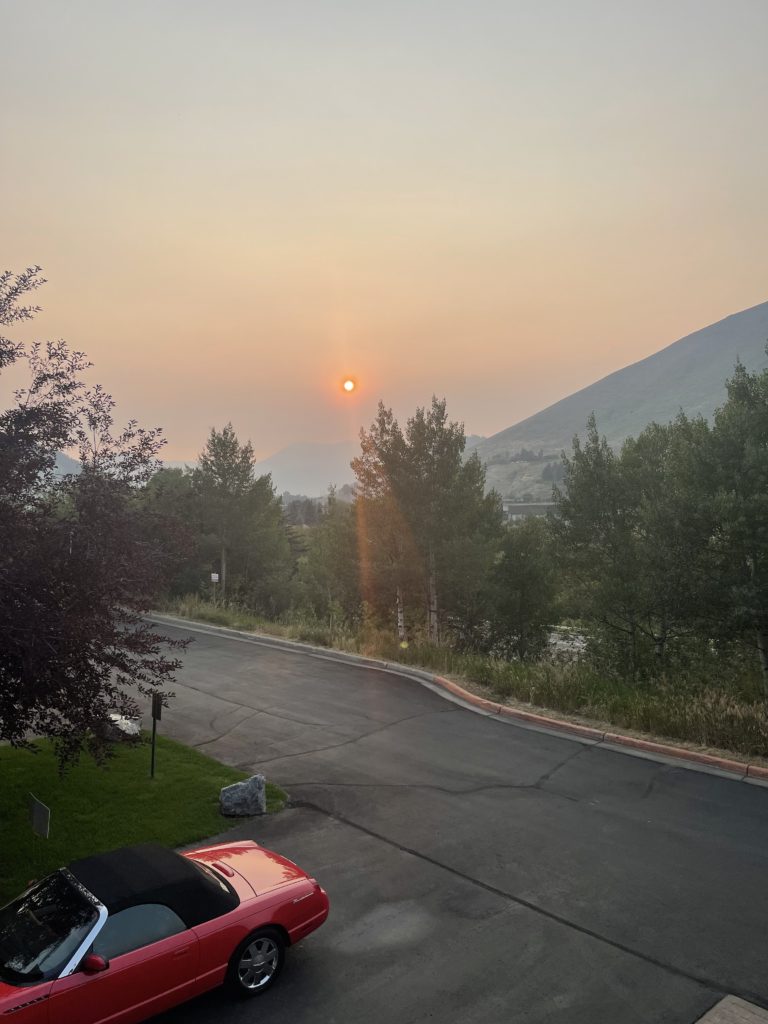
Table of Contents
For millions, “fire season” doesn’t bring to mind s’mores around a campfire, but rather the dark skies and itchy eyes associated with smoke from forest fires. Wildfires rage across the United States every summer, and the current drought conditions along the west coast are only exacerbating the issue.
As a business based in Jackson, WY, we have seen increasingly smokey summers. On many days, it’s not safe to go outside.
Forest Fires and Your Health: An Unexpected Connection
More than 2.5 million acres across ten states have burned so far in 2021 alone, but the problem extends far beyond the counties facing the blaze. Forest fire smoke and other airborne pollutants can travel thousands of miles from their origin, compromising the air quality for everyone in the way.
Too much exposure, and forest fire smoke will affect you physically. Your eyes will tear up, your throat will burn, and you’ll begin to experience inflammation in the lungs that can trigger asthma and serious health problems like bronchitis, heart attacks, and lung disease.
So what’s the solution? Staying inside might seem safe, but homes harbor more smoke particles than people realize—not to mention hundreds of other pollutants and potential respiratory irritants. Outdoor air easily enters homes through mechanical ventilation and small cracks in the walls, ceilings, and door and window frames, bringing the irritating particles indoors with it.
How Air Purifiers Work for Wildfire Smoke
Indoor air purifiers work by pulling small particles from the air with a fan and trapping them into fine mesh filters. The best purifiers come equipped with high-efficiency particulate air (HEPA) filters. According to the EPA, HEPA filters work to remove at least 99.97% of “dust, pollen, mold, bacteria, and other airborne particles of size 0.3 microns from the air”.
When you clean or toss the filter, you’re permanently removing these particles from your home. That’s a far better solution than dusting or vacuuming, which tends to stir them up into the air and increase your chance of breathing them in.
Activated carbon filters solve a different problem. They draw in scents and gaseous pollutants like VOCs that tend to escape through HEPA filters. This makes them well suited for odor control, especially for smokers and pet owners.
Most of the air purifiers on this list utilize both HEPA and activated carbon filters to capture the full spectrum of airborne irritants in your home.
Air purifiers vary in price and power. Some can cover the entire main floor of your home, while others will purify little more than a small office. You can pay hundreds or settle for a basic model for about $80. Deciding which model is best for you comes down to understanding your space needs, anticipated frequency of use, and the value for you (if any) of premium features like auto-mode.
Our top picks
One proven strategy to combat wildfire smoke health risks is to run an air purifier in your home. Here are our top picks.
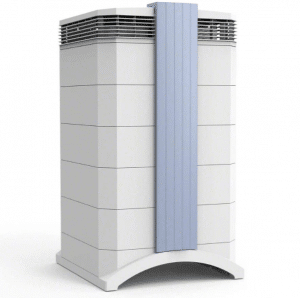
Best for Fighting Wildfire Smoke: IQAir HealthPro Plus
Highlights: While pricy, the HealthPro Plus is a medical-grade air purifier that filters ultra-fine particles (smaller than 0.003 microns) to remove every trace of smoke from your home.
For those who don’t want to compromise on air quality in any way, the AirIQ HealthPro Plus is the only air purifier worth your consideration. This medical-grade machine is packed with 53 sq feet of HyperHEPA filtration material. It covers a room up to 1,125 sq ft and removed particles 100% times smaller than the 0.3 microns other purifiers claim. This ultra-fine particle filtration system even removes viruses to keep you healthier in your own home.
Choose the HealthPro Plus (rather than the IQAir HealthPro or HealthPro Compact) for extra protection against wildfire smoke. It includes a specialized V5-Cell filter with 5 lbs of activated carbon for removing the slightest traces of gases and odors for completely clean air indoor air.
While this high-end filter may be overkill for everyday use, it’s proven to be a lifesaver during smoke season for anyone with respiratory sensitivities.
Testing the IQ Air during smoke season
We run an IQ Air MultiGas and Health Pro Plus model during smoke season in Wyoming. With the doors and windows closed, we have found the units to be an excellent tool for maintaining air quality when we can’t go outside.
- Medical grade air purifier
- Advanced clean air delivery rate
- Peace of mind
- Replacement filters are expensive
- Machine is large and cumbersome to move
- One of our units became nosier after our dog seemed to dislodge an internal part
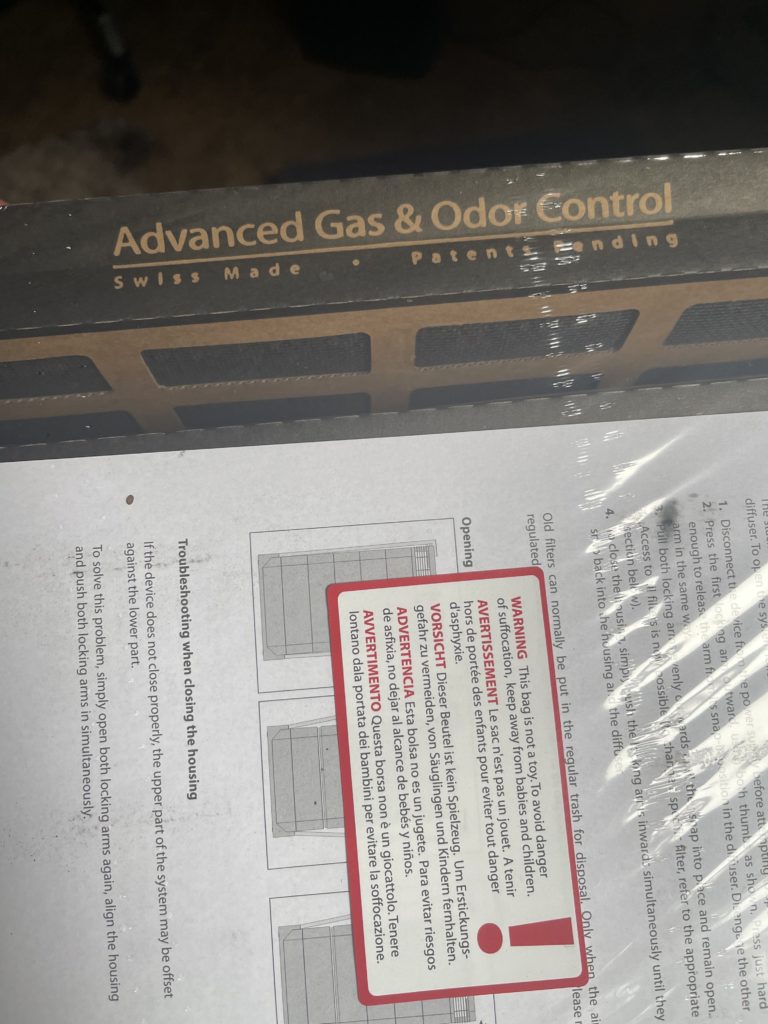
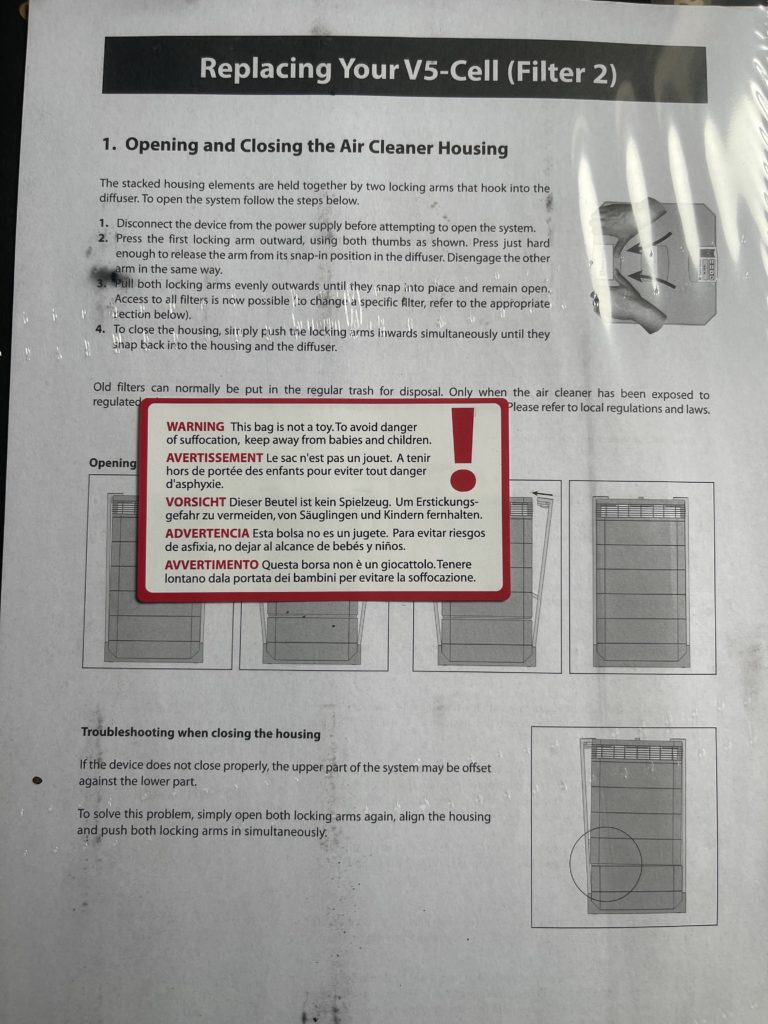
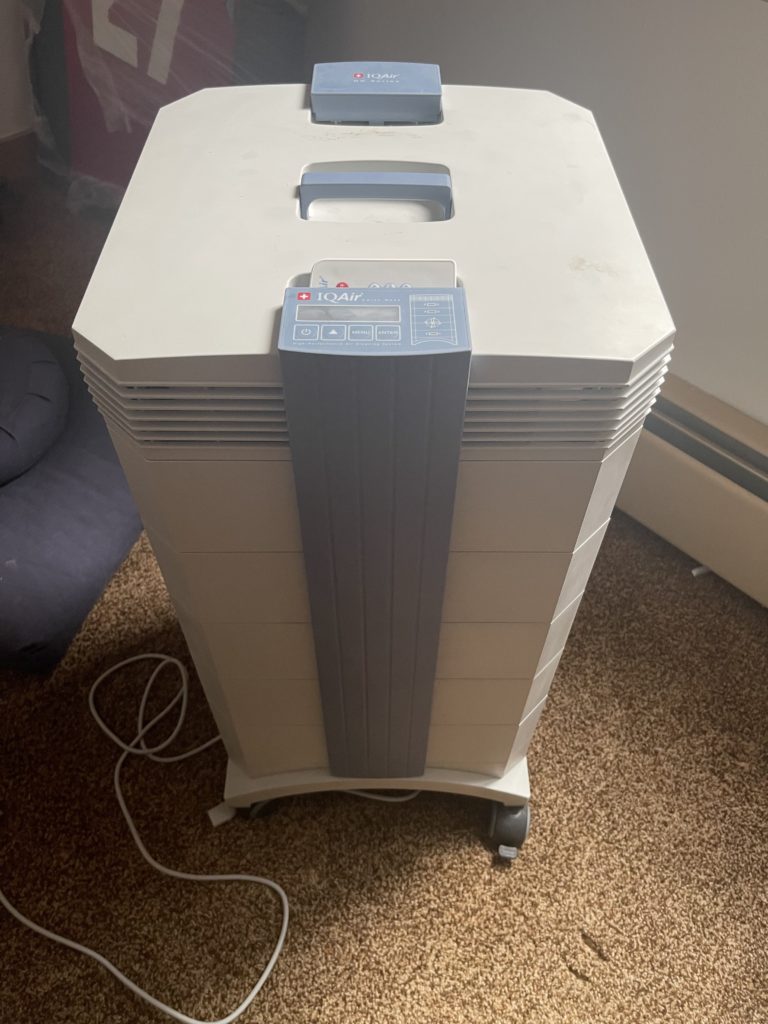

Overall Best Air Purifier: Levoit MetaAir
Highlights: With a massive coverage range of over 1,000 feet, the Levoit MetaAir works hard enough to filter an entire story of an average-sized home within 30 minutes. Its attractive price and relatively small footprint make it our top recommendation for clean air during fire season.
Although it only takes up 12 inches of floor space, the Levoit MetaAir will purify a large portion of the air in your home quickly. It’s rated to remove 99.97% of 0.3-micron particles throughout a room as large as 1076 feet in just 30 minutes—making it large enough to handle multiple rooms at once. But despite its power, the device is Energy Star certified.
The MetaAir’s auto-mode takes the guesswork out of messing with sets for you by detecting the concentration of airborne contaminants around you and adjusting the fan speed accordingly. Or, choose from the three pre-set fan speeds based on whether you’re breathing in more forest fire smoke or pollen than average.
Noise-wise, it rates at just 25dB at its lowest setting to ensure it won’t disturb you. Bonus: you can turn off the LED light for less disturbance as you sleep.
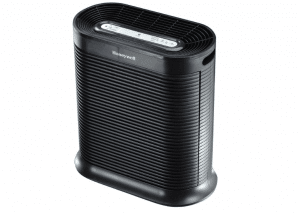
Best for Quick Cleans: Honeywell HPA300
Highlights: The Honeywell HPA300 is a workhorse in regular conditions, but its turbo mode promises to offer relief on days when smoke particles are overwhelming your lungs.
This Energy Star-qualified air purification system will capture up to 99.97% of airborne particles in your home. It has a 465-square-foot capacity and works at a rate of 4.8 air changes per hour. You can choose from three power settings (low, medium, high) and auto-off timers set for two, four, or eight hours. For extra-quick cleans, the purifier includes a “turbo” feature.
The purifier’s prefilter has odor-reducing properties to eliminate smoke and other smells from your home. A reset light on the front lets you know when it’s time to be replaced (every three months on average).
While the purifier weighs 21 pounds, it’s surprisingly quiet and will quickly blend into the background of your living space.

Best for Daily Use: Blueair Blue Pure 211+
Highlights: The Blueair stands out for its quiet running mode and impressive working range to keep you breathing well all day.
The Blueair Blue Pure 211+ claims to remove up to 99 percent of small particles from wildfire smoke within an hour of running. It processes the air within a 540 ft² room at 4.8 air changes per hour (a rate of once every 12.5 minutes) to lower the particle levels long-term and maintain a comfortable living environment.
This 13-lb device boasts a simple interface—just tap the touch-sensitive button on the front to set it to low, medium, high, or off. This makes it the ideal choice for those who rather not mess with complicated settings on yet another home appliance.
The purifier utilizes a combination of electrostatic and mechanical filtration known as HEPASilent™, which uses less dense filters for a quieter, more energy-efficient purification process. A fabric prefilter includes activated carbon to remove odors from pets, cooking, and smoke.
Another buyer’s incentive: Blueair’s 60-day in-home trial period ensures you can experiment with this purifier for weeks before deciding whether to keep it.

Best Small System: Levoit Core 300 True
Highlights: While small in stature, this air purifier performs with the best and lets you switch out the filters depending on the kinds of pollutants you plan to purify against.
Don’t let the small size of this air purifier fool you—while the Levoit Core 300 weighs under nine pounds, it effectively traps up to 99.97% of airborne particles throughout 219 square feet of living space, so you’re dealing with less fine dust, pollen, and pet dander.
The QuietKEAP technology keeps decibel levels under 24dB for unobtrusive running all day long. The high-efficiency activated carbon filters neutralize the smell and negative effects from smoke, VOCs, and other indoor fumes, as well as cooking smells and pet odors. It’s also possible to choose specialty filters to target certain pollutants, including a Toxin Absorber Filter for wildfire smoke and other models for pet odors and dander.
You can set the run time to 2-8 hours with the built-in timer, and the Sleep Mode lets it run without keeping you up.

Best Budget Option: Germ Guardian AC4852 Air Purifier
Highlights: Despite its low price, the Germ Guardian performs with the best air purifiers—so long as let it run in a smaller space.
For those looking for a budget-friendly option, the Germ Guardian air purifier is hard to beat. This 4-in-1 air purifier includes a HEPA filter, UV-C sanitizer light, and charcoal filter for odor reduction within its slim 22-inch base—all for less than $100. It’s rated to capture up to 99.97% of air pollutants, including allergens as small as .3 microns.
However, its low price tag comes with some range limitations, as the Germ Guardian works best in rooms only up to 153 square feet, meaning you may need multiple units to cover entire floors of your home.
The device itself runs at three speeds, including an ultra-quiet mode as its lowest setting. You’ll need to replace the unit’s single filter every 6-8 months.

Best Smart Air Purifier: Dyson Pure Cool Link TP02
Highlights: This connected air purifier lets you track its operation on your smartphone and control it remotely through Amazon Echo and other smart devices for hands-free purifying.
Take your smart home to the next level with this WiFi-enabled air purifier from Dyson. This device automatically monitors your home’s air quality to react in real time to purify it. Use the Dyson Link app to track your indoor air quality and see live air quality metrics for your space while controlling the device remotely when you want to enhance the clean. You can also link it to Amazon Echo for voice control.
It works to remove up to 99.97% of pollutants and allergens with a 360-degree vacuum-sealed glass HEPA filter that contains a layer of activated charcoal for odor removal. Use it for twelve hours a day, and you’ll still only need to replace the filter once per year—the app will let you know when it’s time to switch one out.
The Dyson Pure Cool Link TP02 includes a night-time mode where it operates on its quietest setting and dims the LED display so as not to disturb light sleepers. Best of all, this purifier performs double duty in the summer by acting as a bladeless fan to keep you cool.
Six Strategies to Protect Yourself from Wildfire Smoke
Filtering your indoor air with a highly rated air purifier is just one piece of the puzzle of protecting yourself from wildfire smoke. Follow these other suggestions to keep your living space as smoke-free as possible. Combined, they’ll help your family keep breathing well.
- Only use vacuums with HEPA filters to trap and remove smoke particles. Other vacuums may make the problem worse by tossing particles into the air where you’re likely to breathe them in.
- When smoke worsens, keep all exterior doors and windows tightly sealed with weather stripping or masking tape. Don’t forget the mail slot or the chimney flue for the fireplace!
- Install a high-efficiency filter (MERV 13 and above) in your central heating or air conditioning system. Run their fans frequently to keep the air circulating.
- If you’re using a window air conditioner, close the outdoor air damper and seal any gaps between the unit and the window to prevent smoke particles from settling in.
- Wear safety goggles and a NIOSH-approved face mask to block particles from irritating your eyes, nose, and lungs whenever you leave the house. Note: Cloth masks may not adequately filter out smoke particles.
Check if your laundry room and bathrooms have ventilation ducts that lead outside and keep their doors shut if they do.
Hmmmm… most of these brands are good but not great. IQAir is superb and falls it to the great list. This list is missing Austin Air. Alen Air is better than most of these listed. If you want to learn about the best of the best air purifiers, talk to those recovering from toxic mold. Air quality becomes absolutely necessary for our recovery and we become super sensitive. Many of us in recovery also deal with chemical sensitivity, and to the extreme, multiple chemical sensitivity. Those with chemical sensitivity can have issues with smoke as well as many other things. Before this comes off as harsh, this list isn’t horrible but just not the best of the best if that makes sense.